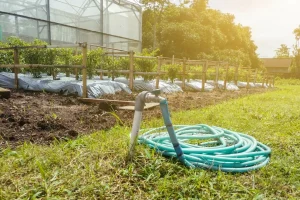Irrigation automation is a system that automates the irrigation process with the help of sensors and software. In addition, irrigation time and duration are managed by being programmed in advance. Therefore, the amount of water needed by plants is provided at exactly the right time. In this case, water waste is largely prevented. This way, both costs are reduced and productivity increases. Furthermore, soil moisture sensors determine the irrigation time. Therefore, plants receive water at the right time. In this case, root development is supported and product quality increases. In this way, agricultural production progresses more evenly. Moreover, weather data can be integrated into the automation system. Therefore, irrigation is automatically stopped on rainy days. This prevents unnecessary water usage. This way, natural resources are protected. Furthermore, the system can be remotely managed via mobile applications. Therefore, farmers can monitor their fields in real-time.
Table of Contents
- How Does Irrigation Automation Work?
- Advantages of Automatic Irrigation Systems for Agriculture
- Timed Irrigation Systems and Their Applications
- The Role and Importance of Irrigation Automation in Smart Agriculture
- Software and Hardware Technologies Used in Irrigation Automation
- Conclusion
- Frequently Asked Questions
How Does Irrigation Automation Work?
Irrigation automation automatically manages the irrigation process based on environmental data. Furthermore, the system’s operation depends on sensors, a control unit, and timers. Therefore, the irrigation process occurs without the need for manual intervention. In this case, savings are achieved in water and labor. This way, the production process becomes more efficient. Furthermore, soil moisture sensors measure the soil’s water requirements. Therefore, irrigation is only performed when necessary. In this case, water waste is minimized. This allows plant roots to develop in a balanced manner. Additionally, weather sensors can be integrated with the system. Therefore, irrigation is automatically disabled on rainy days. In this case, maximum benefit is obtained from natural resources.
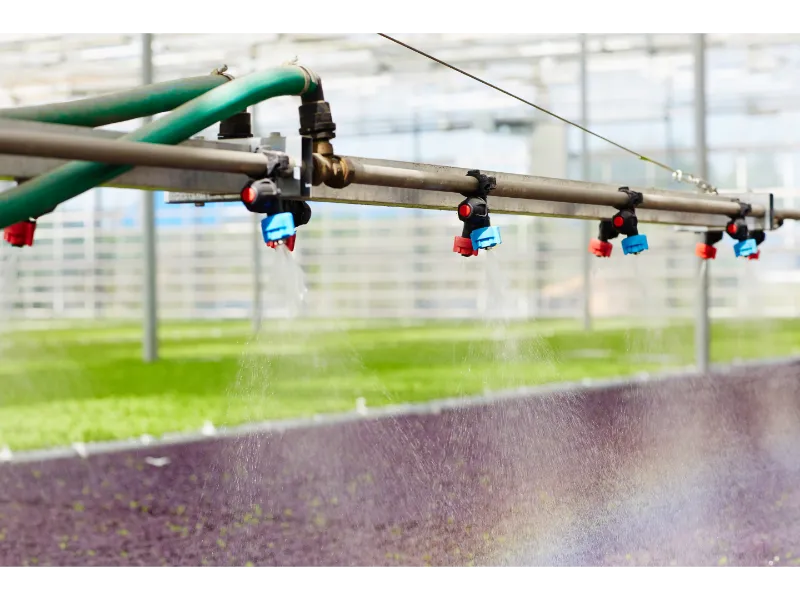
Advantages of Automatic Irrigation Systems for Agriculture
Automatic irrigation systems increase efficiency and resource utilization in agricultural production. Furthermore, the irrigation process occurs without the need for human intervention. Therefore, time savings are achieved and labor requirements are reduced. In this case, farmers can manage the production process more easily. In this way, larger areas are irrigated in a controlled manner. Furthermore, the systems provide the required amount of water. This prevents water wastage and reduces costs. In this case, production becomes more environmentally friendly. This supports sustainable agricultural practices. Furthermore, plants are watered in a balanced and timely manner. Therefore, root development progresses healthily. In this case, product quality and yield increase. In addition, the systems are sensor and software supported. Therefore, irrigation decisions are made based on data. In this case, human errors are minimized.

Timed Irrigation Systems and Their Applications
Timed irrigation systems automatically start the irrigation process at specified times. In addition, the system is set to operate at pre-programmed intervals. Therefore, the irrigation process occurs in a regular and controlled manner. In this case, irrigation is performed without the need for human intervention. This saves time and reduces workload. Furthermore, different programs can be created for each plant type. Therefore, plants receive as much water as they need.These systems increase yields while reducing water waste, ensuring more efficient resource use. They can be applied in both open fields and greenhouses, enabling easy irrigation of large agricultural areas. The production process becomes more organized, and their flexible, versatile design allows irrigation to be more efficient. In addition, they save both energy and water. Therefore, they support environmentally friendly agricultural practices. In this case, timer irrigation systems play an effective role in modern production.
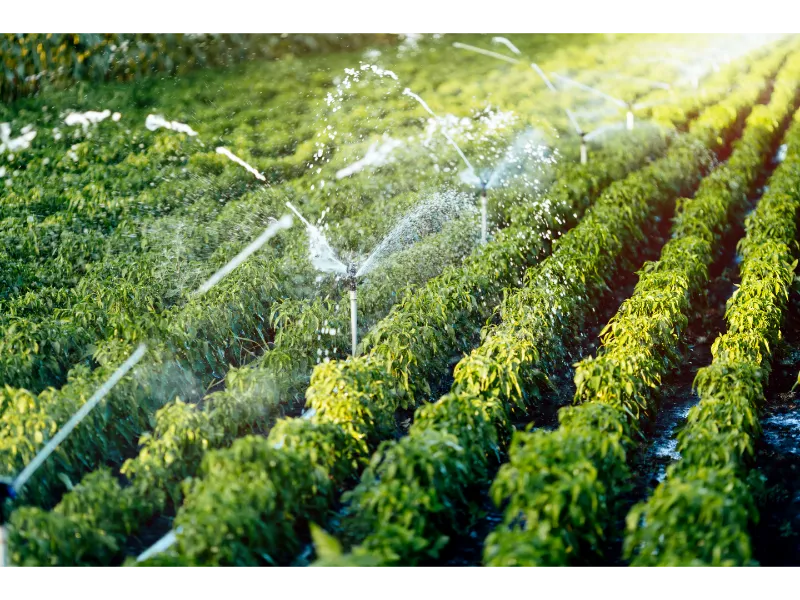
The Role and Importance of Irrigation Automation in Smart Agriculture
In smart agriculture, irrigation automation plays a critical role in terms of efficiency and sustainability. Furthermore, these systems support data-driven decision-making. Therefore, irrigation is only carried out in areas where it is needed. In this case, water waste is prevented. In this way, costs are reduced while efficiency increases. Furthermore, it works in conjunction with soil moisture and weather sensors. Therefore, irrigation timing is automatically adjusted. In this case, plant growth is ensured under the most suitable conditions. This improves product quality, reduces losses, and enables remote management via mobile applications. Producers can monitor fields in real time for faster, more effective interventions, ensuring control and flexibility. Irrigation automation adapts to climate change, increases water efficiency, and minimizes environmental impacts. As a key element of technological transformation, it strengthens smart farming and is expected to become more widespread in the future.
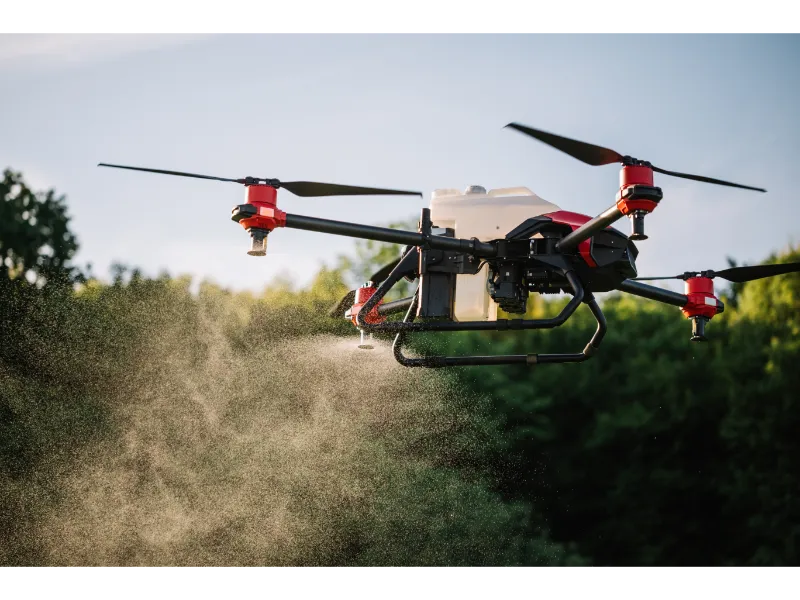
Software and Hardware Technologies Used in Irrigation Automation
In irrigation automation, software and hardware technologies work together to ensure efficiency. Additionally, the systems are supported by sensors, control units, and mobile software. Therefore, the irrigation process is automated and data-driven. In this case, human errors are minimized. This makes the production process safer. Furthermore, soil moisture sensors transmit real-time data. Therefore, irrigation needs are determined instantly. In this case, only the necessary amount of water is used. This prevents waste. Moreover, weather sensors can be integrated into the system. Therefore, rainfall forecasts are included in irrigation planning. In this case, maximum benefit is obtained from natural resources. Furthermore, control panels automatically set irrigation times. Therefore, specific irrigation can be performed for each plant type. In this case, product quality and yield increase.
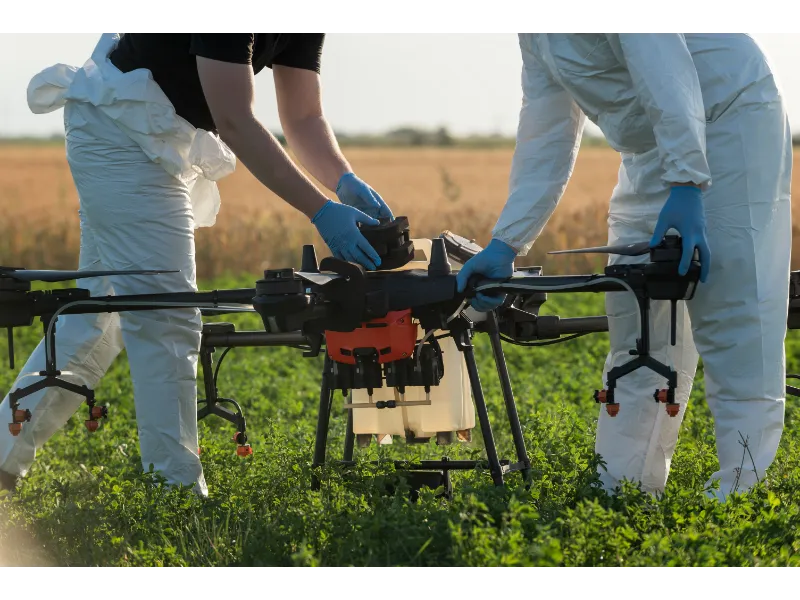
Conclusion
In conclusion, the correct and timely use of water is crucial for agricultural productivity. Furthermore, climate change has made water management even more critical. For this reason, producers are turning to new generation technologies. In this context, the question “What is Irrigation Automation?” is frequently asked. Thus, the importance of automated systems is increasing day by day. Furthermore, sensor and software-supported solutions accelerate production. Thus, water waste is prevented and costs are reduced. In this case, agricultural sustainability is ensured. In this way, environmentally friendly production models are becoming widespread. Moreover, the question “What is Irrigation Automation?” explains the basis of modern agriculture. For this reason, farmers are rapidly adopting digital systems. In this case, production processes are carried out in a more planned manner. In this way, productivity increases and quality improves.
Frequently Asked Questions
What is irrigation automation? It is the automatic and data-driven management of irrigation with the support of sensors and software.
How does irrigation automation work? Automatic irrigation is performed based on soil moisture, weather conditions, and timer data.
What are the advantages of automatic irrigation systems? They provide water savings, time savings, and more efficient and balanced irrigation.
Where are timer-based irrigation systems used? They are commonly used in agricultural fields, greenhouses, gardens, and landscaping areas.
Which sensors are used in irrigation automation? Soil moisture, temperature, weather, and light sensors are commonly used.
Can irrigation automation be controlled with mobile devices? Yes, the system can be monitored and managed remotely with mobile applications.
Is irrigation automation more efficient than manual irrigation? Yes, it provides more accurate and economical irrigation because it is data-driven.
How are watering duration and frequency adjusted? They are programmed according to plant type via the control panel or software.
What components are used as hardware? Sensors, automatic valves, control units, and pump systems are used.
What is the role of irrigation automation in smart agriculture? It increases efficiency, conserves resources, and supports sustainable production.






